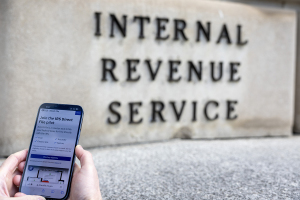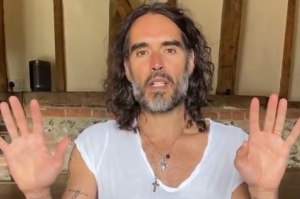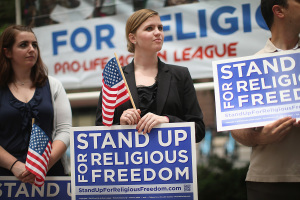Lawmakers Protest Bush Proposal to Protect Pro-life Health Care Workers
Democratic lawmakers are up in arms over a draft proposal by the Bush administration to uphold the rights of health care workers who refuse to dispense emergency contraception and birth control on moral or religious grounds.
On Monday, 104 members of the House of Representatives sent President Bush a protest letter, in which they urge him to "halt all action" to an anti-discrimination employment proposal drafted by the Department of Health and Human Services.
The proposal, which began circulating on Capitol Hill last week, would require hospitals receiving federal funds to guarantee that, in their hiring process, they do not discriminate against nurses and health care workers who object to provide forms of contraception due to moral or religious beliefs.
Pro-life groups praised the draft regulation but some Democratic lawmakers including Sen. Hillary Clinton have argued that it would affect women's access to birth control.
At the center of the controversy is a section of the 39-page draft document that safeguards health care workers who refuse "any of the various procedures – including the prescription, dispensing and administration of any drug or the performance of any procedure or any other action – that results in the termination of the life of a human being in utero between conception and natural birth, whether before or after implantation."
Critics of the draft proposal argue that the wording would "redefine" abortion.
"The regulation's definitions are so broad as to go far beyond abortion politics and threaten virtually any law or policy designed to protect women's access to safe and effective birth control," the lawmakers contend in the letter. "The department does this primarily by defining 'abortion' in a way that could sweep in many common forms of birth control."
The purpose of the rule, according to the document, is to ensure that federal funds "do not support morally coercive or discriminatory practices or polices in violation of federal law."
The White House said it does not comment on proposed regulations.
HHS affirmed in a statement last week that the draft proposal was one possibility the department was exploring to enforce anti-discrimination laws.
"Over the past three decades, Congress has passed several anti-discrimination laws to protect institutional and individual health care providers participating in federal programs. HHS has an obligation to enforce these laws, and is exploring a number of options," HSS said in the statement.
In an e-mail to the Los Angeles Times, Kevin Schweers, a deputy assistant secretary of HHS for public affairs, also noted that the department recently raised concerns over policies enacted by the American Board of Obstetrics and Gynecology that "forced providers to choose between compromising their personal beliefs and facing economic and professional sanctions."
Pharmacists in Washington and Illinois have already run into related legal trouble for refusing to dispense the "morning-after" emergency contraception pill. Currently, only nine states have laws protecting the rights of pharmacists to decline providing such services.





























